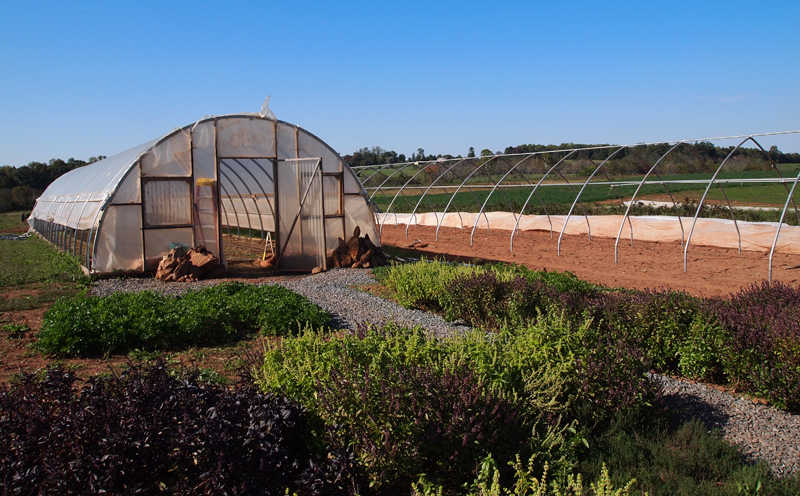Local Food Hub Brings Fresh, Healthy Food to Virginia’s Heartland
by Kristen Suokko and Emily Manley | October 23, 2012

The Critzer family has been farming in Nelson County, in central Virginia, since the Revolutionary War. “We stand behind a five-generation commitment to leave the land and community better than when we found it,” say Whitney and Rosemary Critzer, the farm’s current stewards.
The Critzers and their team of farmhands plant, tend, and harvest an assortment of fruits, vegetables, and flowers that are available at farm stands and through a thriving pick-your-own operation. But today, thanks to a partnership with the Charlottesville-based nonprofit Local Food Hub, their produce can also be found in public schools, hospitals, and restaurants across the region.
Local Food Hub opened its doors in 2009 with a mission to fix a broken food system by reconnecting local farmers, families, and food grown close to home. While food aggregation and distribution is at the crux of Local Food Hub’s operations, the organization does much more, focusing on farmer education, community outreach, and equal access to local food. Together, these programs support economic development, job creation, community health, and farmland preservation.
Local Food Hub believes that small, family farms should be able to sell their produce to large, wholesale markets—and that hospitals, restaurants, public schools, and grocery stores should be able to serve more local food. In the past, small farms have been locked out of these markets because of missing infrastructure, delivery minimums, insurance requirements, and lack of time. Meanwhile, local institutions and businesses have not always been able to access a consistent supply of local fruits and vegetables.
To address these issues, Local Food Hub operates a warehouse that serves as a drop-off point for fruit, vegetables, meat, eggs, and value-added products grown by more than 75 partnering farms. The group’s sales team works with customers to incorporate local, seasonal food into their menus, inventory, and product offerings. Using a refrigerated truck and van, the organization delivers this produce five days a week, seamlessly moving food from farm to hub to wholesale customer.
Since its start, Local Food Hub has sold more than $1.2 million worth of local food to more than 150 local institutions, including 52 schools.
During the winter months, Local Food Hub conducts production-planning sessions with farmers to determine crop selection, planting schedules, and price ranges. This planning is based on the needs of buyers and enables farmers to start the year with a guaranteed market and price for their food. Production guides, growing specifications, farm visits, and training sessions round out these services.
Meanwhile, Local Food Hub’s 70-acre, certified organic educational farm, provided through a generous donation, has enabled the organization to supplement its food distribution efforts with farmer outreach, training, and educational programming. The farm serves as a hands-on demonstration site for new farming techniques, workshops, crop trials, and season-extension methods that Local Food Hub then shares with its partner producers.
More than seven acres of land are under cultivation with a range of annual and perennial fruits and vegetables. Much of this food goes directly back into the organization’s distribution system, but a full 25 percent is donated to food banks and hunger programs in the region.
Labor on the educational farm is provided through a partnership with the International Rescue Committee. Refugee farmers with agricultural backgrounds are employed by Local Food Hub and trained in organic farming methods. This program prepares them to eventually find jobs on other area farms, supporting the growth of new and established farmers in the region.
Finally, community engagement and participation is critical to Local Food Hub’s mission. Through its Farm to School program, Local Food Hub provides a range of fresh fruits and vegetables for lunch and snack programs. Field trips, volunteer projects, and school visits ensure that students learn the value of farming and healthy food choices. A Pop-Up Market program brings fresh, healthy food directly to underserved locations. And Local Food Hub has donated more than 130,000 pounds of produce to food banks, soup kitchens, and non-profit organizations.
Food hubs are popping up all over the nation. Each one is unique to its region and its community, but they all share the same goal: bringing home the economic, health, and environmental benefits of eating fresh, local, delicious food.
Kristen Suokko is Board Chair, and Emily Manley is Communications Director, of the Charlottesville, Virginia-based Local Food Hub.

